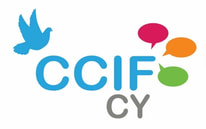ASK for the NEW DATES and for the FULL PACKAGE!!!
Music
This course aims to stress the significant effect of music in learning and provide participants with teaching strategies with the use of music as a powerful tool in learning processes. Music improves academic engagement, cognitive evolution, develops critical thinking, and fosters self-esteem, intercultural awareness, and the ability to work cooperatively in teams.
- The role of music in our life
- The benefits of music in education
- Music as a teaching tool
Theatre
The importance of performing arts in education is very powerful. Students could not only perform in theatre productions, help out behind the scenes and learning through drama but teachers could raise their creativity for their future life.
The course aims to provide teachers with an authentic, active learning experience for their students by including the drama-based strategies in their lessons. Participants will also learn about project-based learning, grow and develop professionally and build strong relationships with colleagues from all over Europe.
Methodological approach:
- Team – Building
- Role – Play
- Simulation
- Problem – Solving
- Decision – Making
- Star bursting
- Self – Motivation
Creation of Educational Video Games
Participants will learn the fundamental principles of coding and how it can be used in the education field, learning how to create video games in an easy way in order to make coding an interesting activity for our beneficiaries.
- Learn the concept of gamification
- Know the educative use and values of creating applications
- Video games in teaching
- Integrate digital tools into daily work
- To promote ICT teaching to boost its learning in the educational system
Learning and Teaching in Social Media Networks
Participants will be able to know how to communicate and innovate in education through social networks, being able to strengthen educational community members’ interrelationships, collaboration and engagement.
All the levels of competence to be developed in each of the topics that make up the courses are based on the DigComp 2.1 and DigCompEdu reference frameworks.
- The power of social networks in education
- Social networks in our society
- Social networks as a source of knowledge
- ICT teaching to boost the learning in the educational system
- Challenges of online interactions
- Warning signs of risks and dangers on the Internet
STEM
STEM acronym (Science, Technology, Engineering, and Mathematics). The course envisages the training of different branches by an interdisciplinary method rather than a separate one. With the combined use of different disciplines, the course aims to prepare the project, execute the project, solve the problems encountered in the process and produce the product. With a permanent education method provided by STEM education in the schools, students will be trained as individuals who can solve their problems, self-confidence and use their theoretical education in real life.
Objectives
- Understanding the importance of different interdisciplinary education
- Using project-based learning in the classroom
- Integrating new technologies into the classroom
- Providing permanent learning while enhancing academic performance
- Lesson planning for STEM
- Project-based lesson design
- Use of your increased reality in class
- Web 2.0 tools that can be used for class
- Assessment tools that can be used in class
All our courses are organized within the 4 priorities of Erasmus+:
- Inclusion and diversity
- Digital Transformation, eg. ICT or STEM
- Environment, climate change
- Demoracy in EU
Furthermore, teachers develop transversal skills such as creativity, teamwork for the establishment of active networks, interpersonal communication, decision making, etc.
COURSE FEES:
5 days, 400e/person
7 days, 560/person
Confirmed dates:
19-24 June 2023
20-24 July 2023
17-23 August 2023
Read our privacy policy
Child Protection Policy of CCIF Cypruschild_protection_policy_of_ccif_cyprus.pdf


